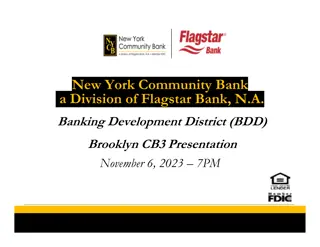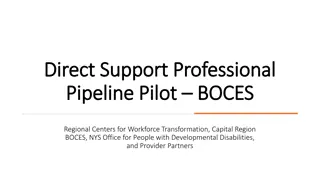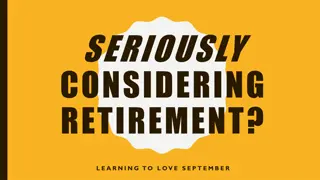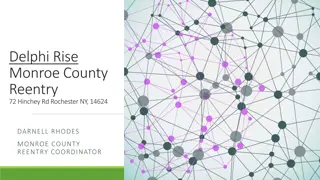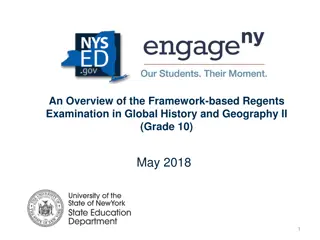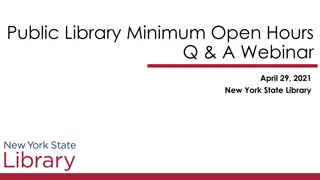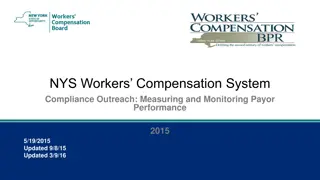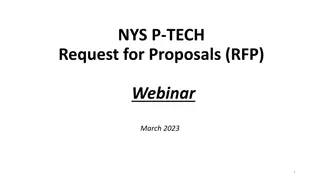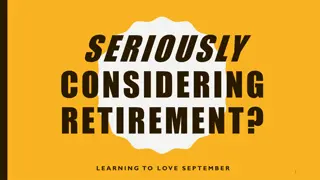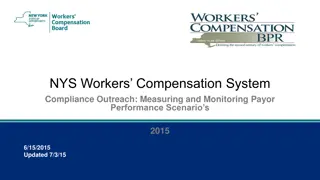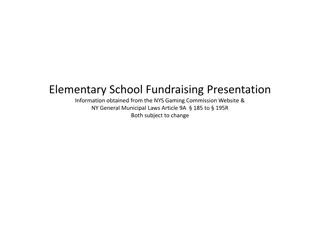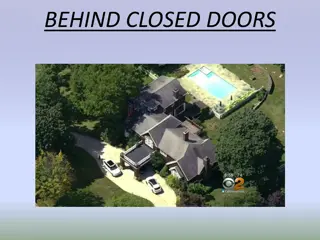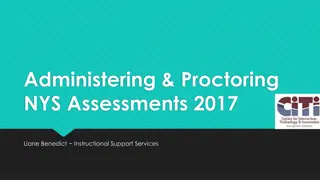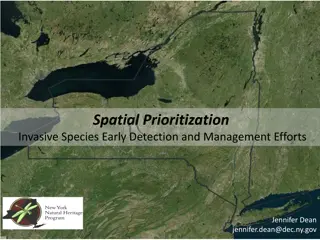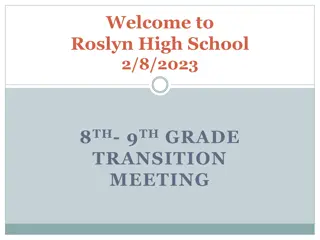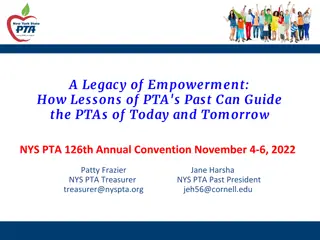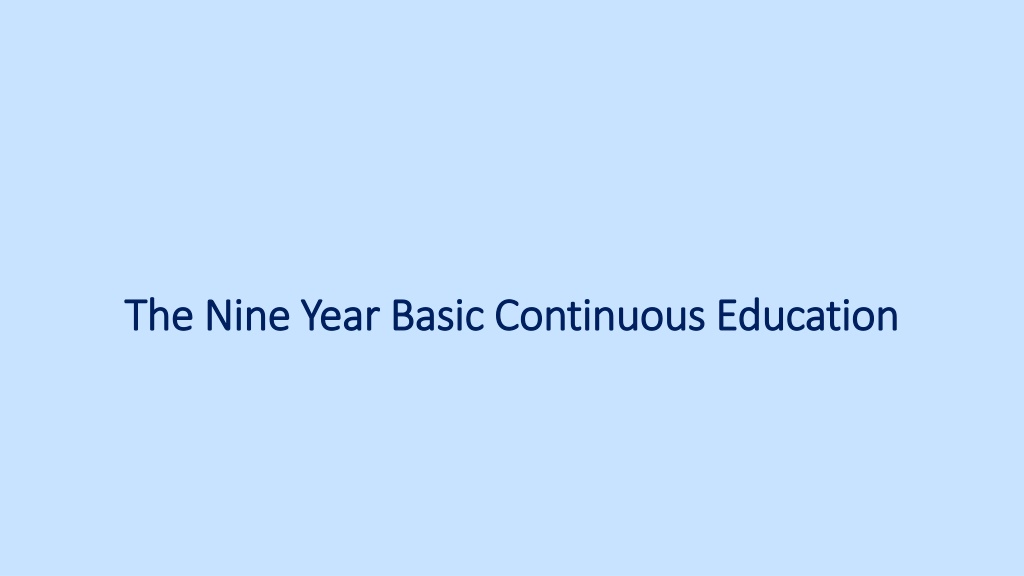
Empowering Education Reform for 2030 and Beyond
Discover the rationale and objectives of the Nine-Year Basic Education Reform focusing on equipping students with essential competencies, promoting holistic development, and facilitating a smooth transition to secondary education while emphasizing the value of TVET for sustainable development. Explore the critical thinking, creativity, and communication skills essential for success in the 21st century.
Download Presentation

Please find below an Image/Link to download the presentation.
The content on the website is provided AS IS for your information and personal use only. It may not be sold, licensed, or shared on other websites without obtaining consent from the author. If you encounter any issues during the download, it is possible that the publisher has removed the file from their server.
You are allowed to download the files provided on this website for personal or commercial use, subject to the condition that they are used lawfully. All files are the property of their respective owners.
The content on the website is provided AS IS for your information and personal use only. It may not be sold, licensed, or shared on other websites without obtaining consent from the author.
E N D
Presentation Transcript
The Nine Year Basic Continuous Education The Nine Year Basic Continuous Education
Rationale of the Nine Year Basic Education Reform Rationale of the Nine Year Basic Education Reform Need to transform Education for the 21 Need to transform Education for the 21st stCentury Century The learner emerging from the education system 15 The learner emerging from the education system 15- -20 y from now Core Core C Competencies ompetencies 20 y from now Critical thinking skills - ability to solve complex problems Creativity, innovation Adaptability, self-discipline, initiative Oral and written communication skills , public speaking skills Leadership, teamwork, collaboration Fluency in ICT, entrepreneurship skills Global awareness, multicultural literacy Scientific literacy and reasoning Environmental and conservation literacy Comprehensive basic education cycle that provides the foundational skills for Comprehensive basic education cycle that provides the foundational skills for success in all further learning success in all further learning
Objectives of the Nine Year Basic Education Objectives of the Nine Year Basic Education Equip all students with knowledge, foundational skills and attitudes leading to an Equip all students with knowledge, foundational skills and attitudes leading to an empowered 2030 citizenry empowered 2030 citizenry Inculcate in Inculcate in all students identity for the country identity for the country all students a sense of moral a sense of moral responsibility, a set of values and a strong responsibility, a set of values and a strong Promote the holistic development of all students Promote the holistic development of all students Provide Provide equitable equitable Learning for All opportunities to Learning for All opportunities to attain high levels of achievement achievement attain high levels of Achieve a Achieve a smooth smooth transition to and completion of secondary education transition to and completion of secondary education Give greater recognition to the value of TVET in building human capital and for Give greater recognition to the value of TVET in building human capital and for sustainable development sustainable development
Accompanying measures Accompanying measures 1. 1. Revisiting Revisiting C Curricula Holistic development, cater for the diverse learning needs of all learners, emphasise 21stC skills urricula 2. 2. Transforming Transforming Learning environments and Pedagogies Create an enabling environment to support innovative pedagogies for o Developing curiosity, o independent learning, o ICT-mediated teaching and learning Pedagogies 3. 3. Remedial Education Remedial Education Fully embedded in the system 4. 4. Review Review Assessments Assessments Introduce new approaches to assessment holistic and meaningful 5. 5. Transforming Teacher Transforming Teacher E Education & Professional ducation & Professional D Development Invest in teacher / school leader development to produce a high skilled teaching force Continuous Professional Development /Teacher Council evelopment of Educators and School of Educators and School Leaders Leaders 6. 6. Accountability for learning outcomes Accountability for learning outcomes Schools become responsible for learning Review of role of Primary School Inspectors / Quality Assurance
The The Proposed Education Structure Proposed Education Structure Grade Grade Level of Education Level of Education School Setting School Setting 1 1 Grades 1 Grades 1- - 6 6 Basic Education (Primary ) Basic Education (Primary ) Primary Schools Primary Schools 2 2 Grades 7 Grades 7 - - 9 9 Basic Education (Lower Secondary) Basic Education (Lower Secondary) Regional Secondary Schools Regional Secondary Schools 3 3 Grades 10 Grades 10 - -11 11 Upper Secondary Upper Secondary Regional Secondary Schools / Regional Secondary Schools / Academies Academies 4 4 Grades 12 Grades 12 - - 13 13 Upper Secondary Upper Secondary Regional Secondary Schools Regional Secondary Schools / Academies / Polytechnics / Academies / Polytechnics
Proposed Education Structure AGE NEW EXISTING LABOUR MARKET POST SECONDARY /HIGHER EDUCATION NQF Level 6 TVET - Diploma courses Polytechnics Tertiary Education Institutions LABOUR MARKET NQF Level 5 HSC/GCE A level - NQF Level 5 NC 5 - NQF Level 5 UPPER SECONDARY (General Education) TVET (17 Years) Form VI2Grade 13 NC 4 - NQF Level 4 Academies Secondary Schools Polytechnics (16 Years) Form VI1 Grade 12 NQF Level 3 GCE/'O' level/SC(General)/(Technical) Qualifications Vocational Qualifications -NQF Level 3 SC (General) - NQF Level 3 Upper Secondary (General/Technical Education) Vocational Education Upper Secondary (General) (15 Years) Grade 11 Form V Academies Secondary Schools Vocational Schools (14 Years) Grade 10 Form IV National Certificate in Education - NQF Level 2 (13 Years) (12 Years) (11 Years) Grade 9 Grade 8 Grade 7 Form III Form II Form I BASIC EDUCATION (Lower Secondary Education) Primary School Achievement Certificate - NQF Level 1 (10 Years) (9 Years) (8 Years) (7 Years) (6 Years) (5 Years) Grade 6 Grade 5 Grade 4 Grade 3 Grade 2 Grade 1 Std VI Std V Std IV Std III Std II Std I BASIC EDUCATION (Primary Education) Primary School Readiness Evaluation (4 Years) (3 Years) PP2 PP1 PP2 PP1 Early Childhood Education
Progression of Students to Secondary Progression of Students to Secondary -Grade 7 Grade 7 CPE replaced by Primary School Achievement Certificate CPE replaced by Primary School Achievement Certificate - - (end (end of Grade 6) of Grade 6)
The Primary School Achievement Certificate The Primary School Achievement Certificate Pupils are assessed in core and non-core subjects Core Subjects : Written examinations Non-core Subjects: School-Based Assessment Core Subjects English, French, Maths, Science, History & Geography and the Asian languages/ Arabic /Kreol Morisien Non-Core subjects/learning areas Physical Education, Civic and Values Education, IT Skills, Communication Skills and the Arts (Music, Dance, Painting, and Drama etc.) School-based Assessment will be introduced in a phased manner undergo a moderation process by an external examining body, the MES. count for the award of the Certificate when well-embedded in the system
The The Primary School Achievement Primary School Achievement Certificate ( Introducing a Introducing a Modular Approach Certificate (contd contd) ) Modular Approach Pupils Pupils will will take take (i) A written assessment at the end of Grade 6 (ii) Modular assessments during Grades 5 and 6 Written Written Assessment Assessment at at the the end end of of Grade Grade6 6 - English, French, Maths, and an Asian language/Arabic/KM Modular ModularAssessment Assessment during during Grades Grades 5 5 and and 6 6 - Science - History & Geography. written written/ / ICT ICT- -based based taken takenat at the the end end of of Grade Grade 5 5 and and during during Grade Grade 6 6 (end (endof of Term Term2 2/ / beginning beginningof of Term Term3 3) ) Cumulated Cumulated results results are arecarried carriedforward forward
Criteria for admitting students to Grade 7 Criteria for admitting students to Grade 7 Parental choice Parental choice Overall grading at the Primary School Achievement Certificate Overall grading at the Primary School Achievement Certificate Proximity of residence to the secondary schoo Proximity of residence to the secondary school Admission to Grade 7 will be done on a regional basis The four Education Zones four Education Zones will be maintained Academies admit students as from Grade 10 regional basis Grade 10
An extended four-year cycle for pupils who do not make the grade
Learners needing special support Learners needing special support A special class special class reserved in every secondary school Reduced class size Extended over a four Extended over a four- -year To allow more time to develop and acquire essential competencies at end of Grade 9 year cycle cycle. Students follow the same but adapted core normal three-year cycle adapted core curriculum as those in the Possibility for student mobility between the Extended and Regular stream The Prevocational stream will no longer exist The Prevocational stream will no longer exist
The National Certificate of Education The National Certificate of Education A combination of written and School-Based Assessments Assessment domains 3 compulsory subjects (English, Maths and French) + 4 electives from the following strands Humanities (Arabic/ Hindi/ Marathi/ Modern Chinese/ Tamil/ Telegu/ Urdu/ etc ) Science (Chemistry, Physics, Biology) Technical Studies (Home Economics, CDT, Visual Arts, Computer Studies) Social Sciences (Social Studies, Accounts, Economics, Entrepreneurship Education)
Promotion to Grade 10 Promotion to Grade 10 Assessment at the end of Grade 9 - the National Certificate of Education Education will serve for National Certificate of promotion promotionof students to Grade 10 orientation orientation in either General or Technical or Vocational education admission to Academies Academies
Different Different educational tracks as from Grade 10 educational tracks as from Grade 10 After completing Grade 9, students have three choices three choices retain the secondary school secondary school where they are already enrolled pursue their studies in General Education in Academies Academies follow vocational programmes in specialized Vocational Vocational Schoo Schools Vocational education will be run in dedicated schools with state-of-the-art technological facilities
Enhancing the image of TVET Enhancing the image of TVET Both General Education General Education and Technical secondary schools Technical Education Education will be run side by side in Students can opt for the General Education or the Technical Education stream Students can sit for either SC (General) or SC (Technical).
Institutional Innovations Institutional Innovations
Academies Academies Academies will act as Centres of Excellence with a specialism in 2 to 3 areas Science, ICT, Business, Languages, the Arts, Physical Education etc. specialism in 2 to 3 areas Academies will run classes from Grades 10 to 13 Grades 10 to 13. Admission to Academies will be on a national national basis basis Criteria for Admission to Academies student performance and aptitude performance and aptitude at the National Certificate of Education student preference for subject combinations preference for subject combinations Academies will be co co- -educational educational institutions Academies will have more autonomy autonomy with a new management model Grant-Aided Private and run as Academies Private Secondary Schools of repute with a track record will be invited to join the reform
Polytechnics Polytechnics Polytechnics will be set up in every Education Zone. Courses will be delivered up to Diploma level Successful completion of the Diploma Level will open up access to higher education. Access to Polytechnics Access to Polytechnics Requisites Requisites successful completion of Grade 11 (in secondary schools/ Academies) successful completion of Grade 13 (in secondary schools/ Academies) after completion of vocational programmes and after following a Foundation Programme
Additional Scholarships Additional Scholarships Scholarships Scholarships for General Education on a for General Education on a Regional 16 new scholarships - 4 for each Education Zone Science Humanities Technical Business. Regional B Basis asis Scholarships Scholarships for Technical Education on a for Technical Education on a National 4 new scholarships diploma holders in Polytechnics to pursue higher education studies in tertiary institutions. National B Basis asis
Implementing the new Assessments Implementing the new Assessments The Primary School Achievement Certificate will be introduced as from 2017 onwards onwards 2017 First Cohort First Cohort Std V in Pupils of Std V in 2016 Grade 7 in 2018 2016 Grade 7 in 2018 Second Cohort Second Cohort Pupils of Std Std V in 2017 V in 2017 Grade 7 in 2019 Grade 7 in 2019 No intake of Grade 7 in the Academies as from January 2018 January 2018 The National Certificate of Education will be introduced from 2020 onwards 2020 onwards
Managing the Transition Managing the Transition Cohort of Pupils of Cohort of Pupils of Std Std V in 2017 V in 2017 will take Modular Modular assessment 1 in October 2017 assessment 1 in October 2017 Modular assessment 2 in July 2018 Modular assessment 2 in July 2018 Written assessment in Written assessment in October 2018 October 2018 2 non 2 non- -core subjects (Communication Skills and IT Skills) core subjects (Communication Skills and IT Skills) Cohort of Pupils of Cohort of Pupils of Std Std V in 2016 V in 2016 will take Modular assessment in Modular assessment in 2017 2017 Written assessment in October Written assessment in October 2017 2017 1 non 1 non- -core subject (Communication Skills) core subject (Communication Skills)


